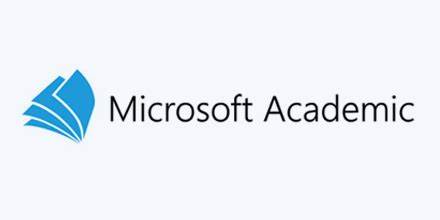A case study of Pakistan’s exports in post COVID-19 scenario
Keywords:
Exports, Covid-19, Pandemic, Pakistan, Developing Economy, GovernmentAbstract
This paper explores the crucial role exports play in Pakistan's economic growth, particularly amidst the disruptions caused by the COVID-19 pandemic. Exports are essential for earning foreign exchange, maintaining current account balance, and driving economic development. However, Pakistan has consistently declined its export-to-GDP ratio since 2014, leading to economic instability. The COVID-19 pandemic worsened these issues, causing supply chain disruptions and a drop in global demand. This study assesses Pakistan's export performance before and after the pandemic, evaluates the pandemic’s impact on trade, and offers recommendations for fostering export-led growth in the post-pandemic period. It also highlights the significant 10% economic loss in FY2021, with major trading partners like the USA, China, and Germany facing severe impacts. Despite challenges, Pakistan's textile and leather sectors grew in areas such as surgical instruments. A survey of 149 respondents showed statistically significant relationships between key variables and government policies like tax waivers and reduced utility costs, which helped revive industries, particularly textiles, creating jobs and boosting exports. The study recommends diversifying low-cost products and enhancing export strategies to recover lost trade. However, limitations such as a small sample size and limited resources suggest that future research is needed to expand on these findings.
References
Agha, A. A., Rashid, A., Rasheed, R., Khan, S., & Khan, U. (2021). Antecedents of Customer Loyalty at Telecomm Sector. Turkish Online Journal of Qualitative Inquiry, 12(9), 1352-1374. https://www.tojqi.net/index.php/journal/article/view/5873/4175
Amjad, M. A., Asghar, N., & Rehman, H. U. (2021). Can financial development help in raising sustainable economic growth and reduce environmental pollution in Pakistan? Evidence from Non linear ARDL model. Review of Economics and Development Studies, 7(4), 475–491. https://doi.org/10.47067/reads.v7i4.406
Baloch, N. & Rashid, A. (2022). Supply chain networks, complexity, and optimization in developing economies: a systematic literature review and meta-analysis. South Asian Journal of Operations and Logistics, 1(1), 1-13. https://doi.org/10.57044/SAJOL.2022.1.1.2202
Das, S., Ghani, M., Rashid, A., Rasheed, R., Manthar, S., & Ahmed, S. (2021). How customer satisfaction and loyalty can be affected by employee’s perceived emotional competence: The mediating role of rapport. International Journal of Management, 12(3), 1268-1277. https://doi.org/10.34218/IJM.12.3.2021.119
Dhar, M. S., Marwal, R., Vs, R., Ponnusamy, K., Jolly, B., Bhoyar, R. C., Sardana, V., Naushin, S., Rophina, M., Mellan, T. A., Mishra, S., Whittaker, C., Fatihi, S., Datta, M., Singh, P., Sharma, U., Ujjainiya, R., Bhatheja, N., Divakar, M. K., … The Indian SARS-CoV-2 Genomics Consortium (INSACOG)‡. (2021). Genomic characterization and epidemiology of an emerging SARS-CoV-2 variant in Delhi, India. Science (New York, N.Y.), 374(6570), 995–999. https://doi.org/10.1126/science.abj9932
Felipe, J., & Fullwiler, S. (2020). ADB COVID-19 Policy Database: A guide. Asian Development Review, 37(2), 1–20. https://doi.org/10.1162/adev_a_00147
Haq, Z. U., Rasheed, R., Rashid, A., & Akhter, S. (2023). Criteria for Assessing and Ensuring the Trustworthiness in Qualitative Research. International Journal of Business Reflections, 4(2), 150-173. Available at: http://journals.pu.edu.pk/journals/index.php/ijbr/article/view/7358
Haque, I., Rashid, A., & Ahmed, S. Z. (2021). The Role of Automobile Sector in Global Business: Case of Pakistan. Pakistan Journal of International Affairs, 4(2), 363-383. https://doi.org/10.52337/pjia.v4i2.195
Hashmi, A. R., & Mohd, A. T. (2020). The effect of disruptive factors on inventory control as a mediator and organizational performance in health department of Punjab, Pakistan. International Journal of Sustainable Development & World Policy, 9(2), 122-134. https://doi.org/10.18488/journal.26.2020.92.122.134
Hashmi, A. R., Amirah, N. A., & Yusof, Y. (2020a). Mediating effect of integrated systems on the relationship between supply chain management practices and public healthcare performance: Structural Equation Modeling. International Journal of Management and Sustainability, 9(3), 148-160. https://doi.org/10.18488/journal.11.2020.93.148.160
Hashmi, A. R., Amirah, N. A., & Yusof, Y. (2021b). Organizational performance with disruptive factors and inventory control as a mediator in public healthcare of Punjab, Pakistan. Management Science Letters, 11(1), 77-86. https://doi.org/10.5267/j.msl.2020.8.028
Hashmi, A. R., Amirah, N. A., Yusof, Y., & Zaliha, T. N. (2020b). Exploring the dimensions using exploratory factor analysis of disruptive factors and inventory control. The Economics and Finance Letters, 7(2), 247-254. https://doi.org/10.18488/journal.29.2020.72.247.254
Hashmi, A. R., Amirah, N. A., Yusof, Y., & Zaliha, T. N. (2021a). Mediation of inventory control practices in proficiency and organizational performance: State-funded hospital perspective. Uncertain Supply Chain Management, 9(1), 89-98. https://doi.org/10.5267/j.uscm.2020.11.006
International Labour Organization. (2020, September 23). ILO Monitor: COVID-19 and the world of work. 6th edition. International Labour Organization. https://www.ilo.org/resource/brief/ilo-monitor-covid-19-and-world-work-6th-edition
Kalichman, S. C., Eaton, L. A., Berman, M., Kalichman, M. O., Katner, H., Sam, S. S., & Caliendo, A. M. (2020). Intersecting pandemics: Impact of SARS-CoV-2 (COVID-19) protective behaviors on people living with HIV, Atlanta, Georgia. Journal of Acquired Immune Deficiency Syndromes (1999), 85(1), 66–72. https://doi.org/10.1097/qai.0000000000002414
Khan, S. K., Ahmed, S., & Rashid, A. (2021). Influence of social media on purchase intention and customer loyalty of generation Y with the mediating effect of conviction: a case of Pakistan. Pakistan Journal of International Affairs, 4(2), 526-548. https://doi.org/10.52337/pjia.v4i2.207
Khan, S. K., Rashid. A., Benhamed, A., Rasheed, R., & Huma, Z. (2023b). Effect of leadership styles on employee performance by considering psychological capital as mediator: evidence from airlines industry in emerging economy. World Journal of Entrepreneurship, Management and Sustainable Development, 18(6), 799-818. https://doi.org/10.47556/J.WJEMSD.18.6.2022.7
Khan, S., Rasheed., R., Rashid, A., Abbas, Q., & Mahboob, F. (2022). The Effect of Demographic Characteristics on Job Performance: An Empirical Study from Pakistan. Journal of Asian Finance, Economics and Business, 9(2), 283-294. https://doi.org/10.13106/JAFEB.2022.VOL9.NO2.0283
Khan, S., Rashid, A., Rasheed, R., & Amirah, N. A. (2023a). Designing a knowledge-based system (KBS) to study consumer purchase intention: the impact of digital influencers in Pakistan. Kybernetes, 52(5), 1720-1744. https://doi.org/10.1108/K-06-2021-0497
Kim, J., & Lee, J. C. (2020). Effects of COVID-19 on preferences for private dining facilities in restaurants. Journal of Hospitality and Tourism Management, 45, 67–70. https://doi.org/10.1016/j.jhtm.2020.07.0087
Mian, A., & Sufi, A. (2014). What explains the 2007-2009 drop in employment?: The 2007-2009 drop in employment. Econometrica: Journal of the Econometric Society, 82(6), 2197–2223. https://doi.org/10.3982/ecta10451
Pakistan Bureau Of Statistics. (2021). Annual analytical report on external trade statistics of Pakistan FY 2020-.Gov.Pk. https://www.pbs.gov.pk/sites/default/files/external_trade/annual_analytical_report_on_external_trade_statistics_of_pakistan_2020-21.pdf
Rasheed, R., & Rashid, R. (2023). Role of service quality factors in word of mouth through student satisfaction. Kybernetes, 53(9), 2854-2870. http://dx.doi.org/10.1108/k-01-2023-0119
Rasheed, R., Rashid, A., & Ngah, A. H. (2024a). Role of Leadership Styles to Foster Innovative Capabilities and Green Purchasing. Journal of Global Operations and Strategic Sourcing, In press. https://doi.org/10.1108/JGOSS-05-2023-0047
Rasheed, R., Rashid, A., Amirah, N. A., & Afthanorhan, A. (2023). Quantifying the moderating effect of servant leadership between occupational stress and employee in-role and extra-role performance. Calitatea, 24(195), 60-68. https://doi.org/10.47750/QAS/24.195.08
Rasheed, R., Rashid, A., Amirah, N. A., & Hashmi, R. (2024b). Integrating Environmental and Entrepreneurship Advocacy into Enviropreneurship through Green Supply Chain Management, Waste Management, and Green Innovation: A Study on SMEs of US. Cleaner Engineering and Technology, 21(2024), 1-11. https://doi.org/10.1016/j.clet.2024.100768
Rashid, A. & Rasheed, R. (2022). A Paradigm for Measuring Sustainable Performance Through Big Data Analytics–Artificial Intelligence in Manufacturing Firms. Available at SSRN 4087758. https://doi.org/10.2139/ssrn.4087758
Rashid, A. (2016). Impact of inventory management in downstream chains on customer satisfaction at manufacturing firms. International Journal of Management, IT and Engineering, 6(6), 1-19.
Rashid, A., & Amirah, N. A. (2017). Relationship between poor documentation and efficient inventory control at Provincial Ministry of Health, Lahore. American Journal of Innovative Research and Applied Sciences, 5(6), 420-423.
Rashid, A., & Rasheed, R. (2023). Mediation of Inventory Management in the Relationship between Knowledge and Firm Performance. SAGE Open, 13(2), 1-11. https://doi.org/10.1177/21582440231164593
Rashid, A., & Rasheed, R. (2024). Logistics Service Quality and Product Satisfaction in E-Commerce. SAGE Open, 14(1), 1-12. https://doi.org/10.1177/21582440231224250
Rashid, A., Ali, S. B., Rasheed, R., Amirah, N. A., & Ngah, A. H. (2022a). A paradigm of blockchain and supply chain performance: a mediated model using structural equation modeling. Kybernetes, 52(12), 6163-6178. https://doi.org/10.1108/K-04-2022-0543
Rashid, A., Amirah, N. A., & Yusof, Y. (2019). Statistical approach in exploring factors of documentation process and hospital performance: a preliminary study. American Journal of Innovative Research and Applied Sciences, 9(4), 306-310.
Rashid, A., Amirah, N. A., Yusof, Y., & Mohd, A. T. (2020). Analysis of demographic factors on perceptions of inventory managers towards healthcare performance. The Economics and Finance Letters, 7(2), 289-294. https://doi.org/10.18488/journal.29.2020.72.289.294
Rashid, A., Baloch, N., Rasheed, R., & Ngah, A. H. (2024f). Big Data Analytics-Artificial Intelligence and Sustainable Performance through Green Supply Chain Practices in Manufacturing Firms of a Developing Country. Journal of Science and Technology Policy Management, In press, https://doi.org/10.1108/JSTPM-04-2023-0050
Rashid, A., Rasheed, R., & Amirah, N. A. (2023). Information technology and people involvement in organizational performance through supply chain collaboration. Journal of Science and Technology Policy Management, In press. https://doi.org/10.1108/JSTPM-12-2022-0217
Rashid, A., Rasheed, R., & Amirah, N. A., & Afthanorhan, A. (2022b). Disruptive factors and customer satisfaction at chain stores in Karachi, Pakistan. Journal of Distribution Science, 20(10), 93-103. https://doi.org/10.15722/jds.20.10.202210.93
Rashid, A., Rasheed, R., & Ngah, A. H. (2024c). Achieving Sustainability through Multifaceted Green Functions in Manufacturing. Journal of Global Operations and Strategic Sourcing, 17(2), 402-428. https://doi.org/10.1108/JGOSS-06-2023-0054
Rashid, A., Rasheed, R., Albhirat, M. M., & Amirah, N. A. (2024g). Conservation of Resources for Sustainable Performance in Tourism. Journal of Tourism Management Research, 11(1), 123-139. https://doi.org/10.18488/31.v11i1.3782
Rashid, A., Rasheed, R., Amirah, N. A., Yusof, Y., Khan, S., & Agha, A., A. (2021). A Quantitative Perspective of Systematic Research: Easy and Step-by-Step Initial Guidelines. Turkish Online Journal of Qualitative Inquiry, 12(9), 2874-2883. https://www.tojqi.net/index.php/journal/article/view/6159/4387
Rashid, A., Rasheed, R., Ngah, A. H., & Amirah, N. A. (2024a). Unleashing the Power of Cloud Adoption and Artificial Intelligence in Optimizing Resilience and Sustainable Manufacturing Supply Chain in the USA. Journal of Manufacturing Technology Management, In press. https://doi.org/10.1108/JMTM-02-2024-0080
Rashid, A., Rasheed, R., Ngah, A. H., & Marjerison, R. K. (2024h). A Nexus of Multiple Integrations and Business Performance through Supply Chain Agility and Supply Flexibility: A Dynamic Capability View. Journal of Science and Technology Policy Management, In press. https://doi.org/10.1108/JSTPM-08-2023-0124
Rashid, A., Rasheed, R., Ngah, A. H., Pradeepa Jayaratne, M. D. R., Rahi, S. & Tunio, M. N. (2024b). Role of Information Processing and Digital Supply Chain in Supply Chain Resilience through Supply Chain Risk Management. Journal of Global Operations and Strategic Sourcing, 17(2), 429-447. https://doi.org/10.1108/JGOSS-12-2023-0106
Rashid, A., Rasheed, R., Rahi, S., & Amirah, N. A. (2024e). Disruptive Factors of Vendor-Managed Inventory in the Manufacturing Industry. Supply Chain Forum: An International Journal, In press. https://doi.org/10.1080/16258312.2024.2330913
Rashid, A., Rasheed, R., Tanveer, U., Ishaq, S., & Amirah, N. A. (2024d). Mediation of Integrations in Supply Chain Information Management and Supply Chain Performance: An Empirical Study from a Developing Economy. Journal of Science and Technology Policy Management, In press. https://doi.org/10.1108/JSTPM-08-2023-0143
Shafi, M., Liu, J., & Ren, W. (2020). Impact of COVID-19 pandemic on micro, small, and medium-sized Enterprises operating in Pakistan. Research in Globalization, 2(100018), 100018. https://doi.org/10.1016/j.resglo.2020.100018
Siddiqui, S., Alhamdi, H. W. S., & Alghamdi, H. A. (2022). Recent chronology of COVID-19 pandemic. Frontiers in public health, 10, 778037. https://doi.org/10.3389/fpubh.2022.778037
Published
How to Cite
Issue
Section
Copyright (c) 2024 South Asian Management Review

This work is licensed under a Creative Commons Attribution 4.0 International License.
Copyright (c) 2022 SAG Publishing









